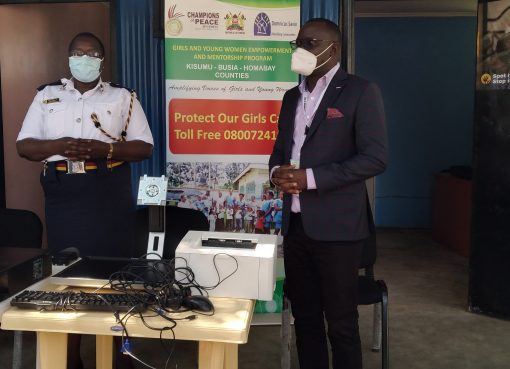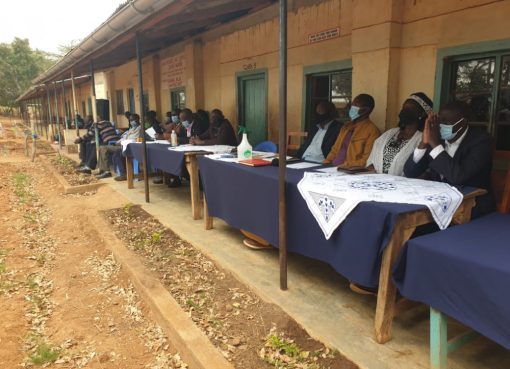Kwale Governor Fatuma Achani has called on the youth in the region to embrace technical skills for purposes of securing a better future.
Governor Achani has challenged the youth to continuously seek knowledge through training opportunities as this would equip them in becoming self-reliant and employers.

She says unemployment has been and still is the biggest challenge confronting the youth because apparently majority of them do not have hands-on skills to earn a living or generate business ideas.
She identified skills acquisition as a solution to youth restiveness and all forms of social vices urging them to explore the available opportunities to create wealth.
The county boss urged young people in the coastal county to embrace technical education and skills acquisition for a sustainable socio-economic wellbeing.
She said with technical and vocational skills the youth could compete effectively in the local and global labour scene.
Achani said this when she presided over a graduation ceremony of Go-Blue skill development programme at Ukunda Vocational Training Centre in Msambweni sub county.
She reiterated that her administration will continue to train youths in the areas of entrepreneurship, skills acquisition and loans support to enable them start up their own businesses.
The Go-Blue Skill Development programme is a six-month training programme sponsored by the German Agency for International Cooperation or (GIZ), the main German development agency.
240 youth graduated and pledged to support the county’s blue economy sectors with their trained labour.
Achani who was accompanied by her Deputy Chirema Kombo and other senior county officials advised the young graduates to put their training to practice as she handed them their certificates and start-up training tools.
She said Kwale County in collaboration with the European Union (EU) and GIZ Go Blue’s Skills Development programme has trained 376 youth at Ukunda Vocational Training Centre between August 2021 and November 2022.
She has stressed the need for the youth to embrace technical and vocational education in order to tackle unemployment and to fast-track the development needs of the county.
“As a devolved unit we are determined to partner with stakeholders in harnessing technical and vocational education in order to reduce the high rate of unemployment among the young people,” she said.
Achani contends that the acquisition of employable skills would take many unemployed youth from the unemployment pool and destitution.
She underscored the need for a paradigm shift from the erroneous perception that skill acquisition is meant for the academically weak adding that technical education remains a ‘potent weapon of improving socio-economic development’.
Achani said the county government has been supporting trainees who join local vocational centres by paying fees for them amounting to Sh.15, 000 for each trainee.
She says it is imperative for unemployed youth to appropriately harness and embrace technical skills to curb high rates of unemployment and the resultant social ills like drug and substance abuse and crime.
“This initiative by the county has seen many youth acquire technical and vocational skills and improve their lot,” she said, adding that her administration is seeking to reposition and restore the lost glory of technical and vocational education in the region.
The EU in Kenya in partnership with the government of Kenya and the six coastal counties of Mombasa, Kwale, Kilifi, Lamu, Taita Taveta and Tana River through the Jumuiya ya Kaunti za Pwani (regional economic bloc) have developed the Go Blue Kenya programme.
The overall objective of the programme is supporting inclusive and sustainable development in coastal cities and ports in the horn of Africa region.
Achani said the Go Blue project aims to harness important coastal and marine resources to achieve a sustainable blue economy and bring jobs to over 3,000 youth.
The blue economy sector encompasses fisheries, maritime biotechnology, aquaculture, tourism and marine transport and logistics.
The youth have been trained in the blue economy’s designated areas of agriculture, tourism and hospitality, maritime transport and logistics, maritime security and ship repair and maintenance.
Other courses offered include masonry, welding, beauty therapy, garment making, motor vehicle electrician and secretarial courses among others.
Industry stakeholders estimate that the blue economy, if properly implemented and harnessed, has the potential to create over 52,000 jobs in the next ten years besides having the capacity to inject Sh470 billion into the national economy.
By Hussein Abdullahi





